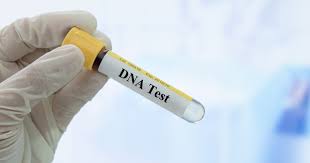It is a common misconception that financial management and estate planning are reserved for the wealthy. Regardless of how much you have in the bank, you and your family can benefit from planning ahead for the future. If you fail to do so, you could leave your family scrambling if you’re suddenly incapacitated. When you are on a fixed income, finances matter more than ever – for example, your car and rent payments must still be made, even if you have suffered serious health problems and can no longer work. Plan ahead to make the best out of the worst case scenario.
Powers of Attorney
Should you be involved in a life-changing accident and end up unconscious in the hospital, who will make decisions on your behalf? It is a question that many people fail to consider, and once you are incapacitated, it’s too late. An experienced estate planning lawyer can help you execute a medical power of attorney so that your wishes are respected should you become incapacitated. The documentation will also point to a specific person who can make important medical choices for you. A living will, sometimes referred to as an Advanced Directive, can also be executed with the medical power of attorney to allow you to specifically state your wishes when it comes to your end of life medical treatment.
It is also important that you have a financial power of attorney prepared. Anyone who travels frequently can benefit from having a trusted friend or family member named as their agent to act on their behalf regarding finances and property management. Of course, should you become incapacitated, designating someone as your power of attorney can also be incredibly useful to ensure that your bills and other legal and financial obligations are met.
Guardians for Minors
When preparing for the future, it’s also essential to consider who you’d like to appoint as guardian for your minor children in case you’re unable to care for them yourself due to incapacity or death. While this outcome can be difficult to think about, it’s important that your kids have security during this difficult time. Without a will, the guardian will be selected by the courts. This person may not be your first choice to care for your children, so it’s important to have your wishes documented.
Precious Keepsakes
Wills or trusts are also worthwhile if you have specific wishes for your material possessions and who receives them. The value of a beloved heirloom may not be monetary: In many cases, the keepsakes we pass down through the generations aren’t worth a lot of money but possess a great deal of sentimental value. Without a will or trust in place, the fate of your treasured possessions is in question. Your heirs will be forced to decide among themselves how to divide items up “evenly.” When used along with a will or trust, a personal property memorandum allows you to dictate who will receive your most precious keepsakes. Another benefit of the personal property memorandum is that you are able to change the document as often as you want without having to update the will or trust.
While you might not have ever considered an estate plan and what it might entail, it’s worth meeting with a trusted estate planning attorney to discuss ways to prepare for your future. Regardless of your income or net worth, it’s always a good idea to have a plan in place to protect yourself, your loved ones, and the things you hold most dear in life.



